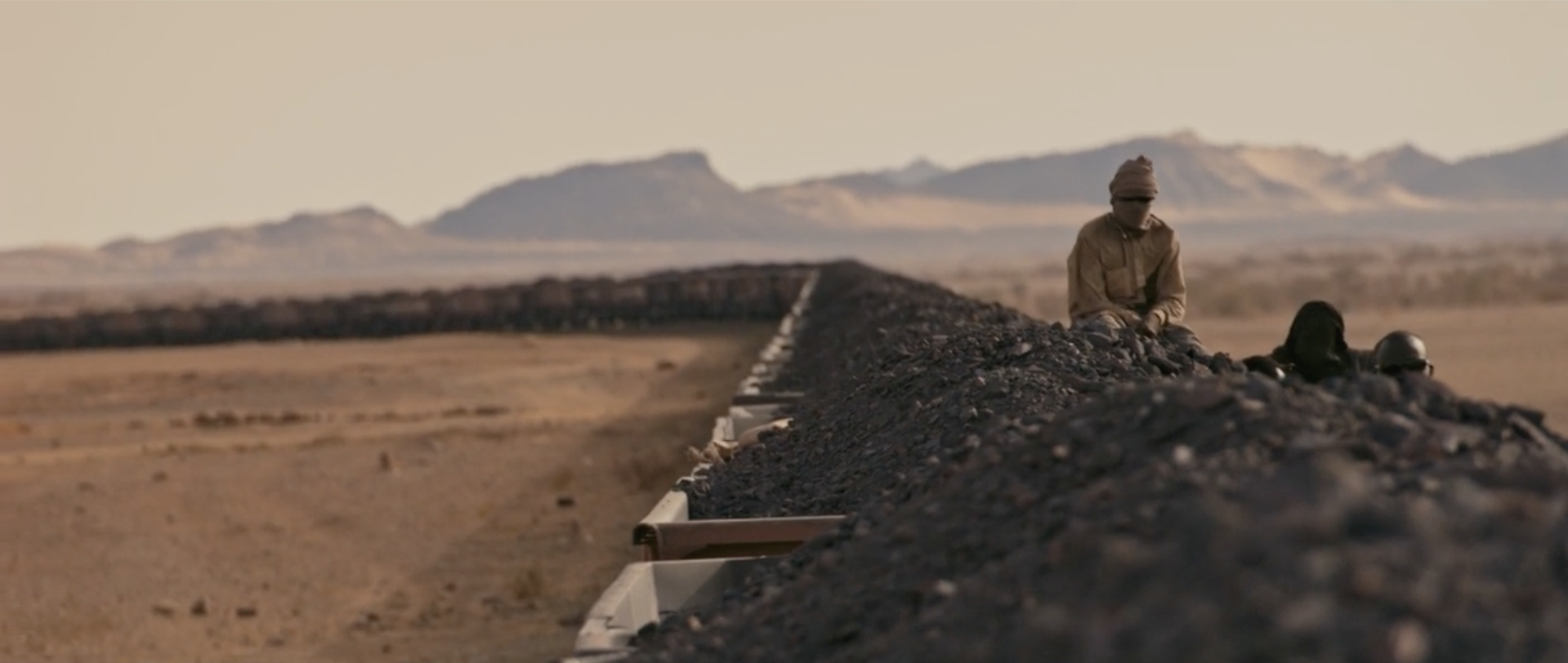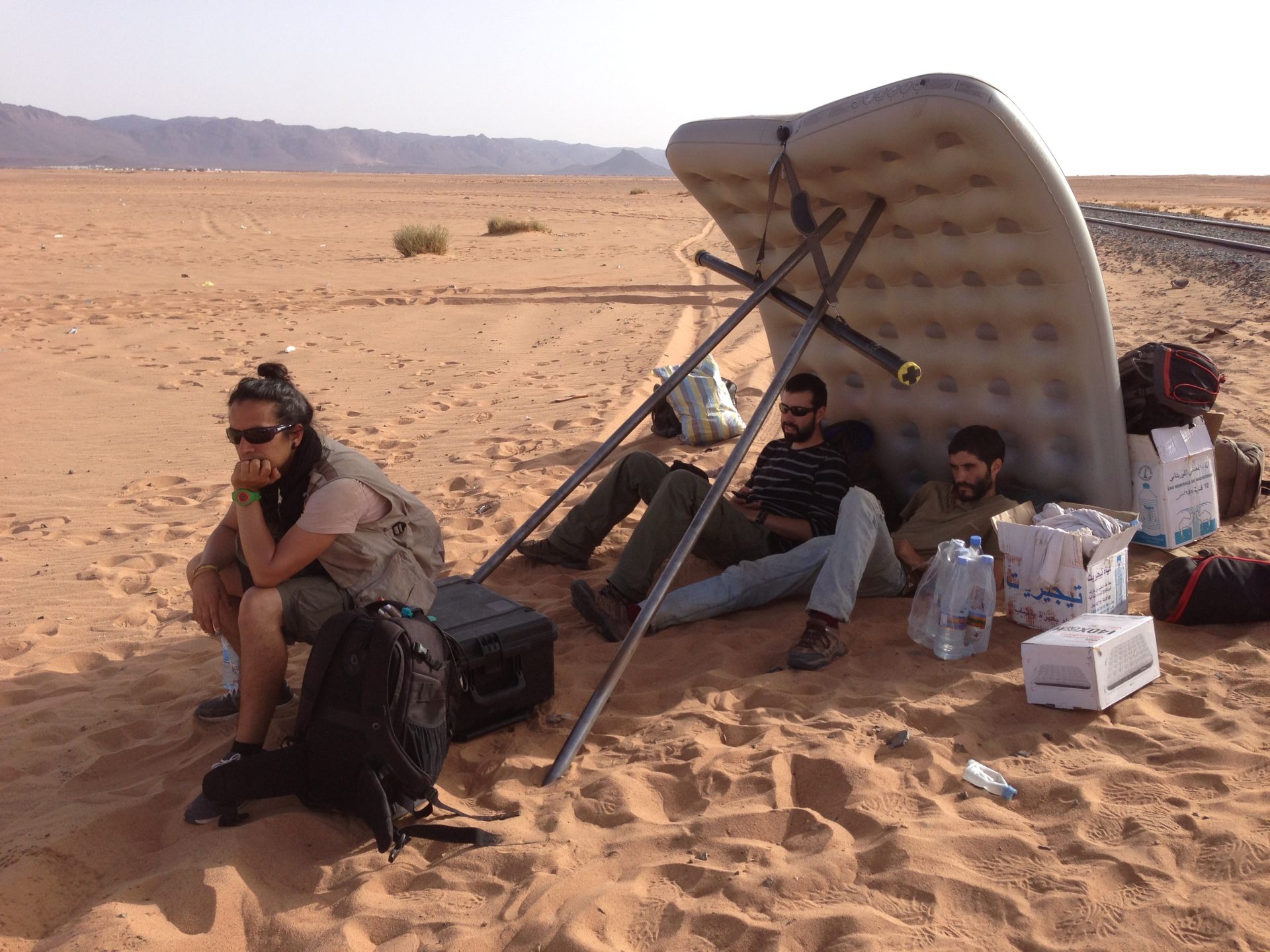Charging across the desolate sands of Mauritania in Africa’s North-West, some of the longest and heaviest trains in the world make a 704 kilometre journey from the mining centre of Zouerat, to the port of Cansado, carrying loads of iron ore for export.
The train line is more than a means of transporting natural resources across the Sahara, however. As catastrophic drought and population density pushes cities to their limits, local merchants, and the nomads who call the desert home, have come to rely on the Mauritania railway for their very survival.
Five years ago, a small band of filmmakers set out to discover what life was truly like in this remote and challenging region.
The result is The Mauritania Railway: Backbone of the Sahara, a short documentary that delicately balances spellbinding vistas with a touching reflection on human resilience.
Led by director Macgregor, the team made the 30-hour trip between the mines and port a dozen times over two years. Though the train occasionally includes a carriage for passengers, the crew joined locals in the open-top wagons.
Doing so is illegal, and many merchants die in the process of taking their produce inland.
“The train constantly shakes and vibrates”, Macgregor explains.
“The many wagons move at varying speeds and if the train brakes, a jolt will ripple down the line that can take you by surprise. This is dangerous because the wagons are usually full of iron ore and have little room for people – so if you’re half asleep and you fall off the train to the middle of the desert… good luck.”
Despite what the stunning cinematography suggests, making the journey was a gruelling endeavour. Surrounded by chunks of ore, exposed to the heat and dust, the team struggled to adapt mentally.
It was the frequent sandstorms that took the heaviest toll.
“If the train goes through one you feel like you want to die – all you can do is just close your eyes and let it pass.”
Macgregor admits his comfortable European lifestyle had not prepared him for what many Mauritanians were forced to silently endure in order to care for themselves and their families. By the time the first trip came to an end, he was prepared never to return.
But he did, in July of 2014.
“The second time was a lot better. We brought masks for the train and came knowing the issues we’d face, so we were, mentally, more prepared. It almost felt like home because we had spent so many weeks in the same locations already.”
The Mauritania Railway: Backbone of the Sahara marks the first entry into a proposed docu-series entitled Colliding Worlds.
“After posting the documentary on Reddit, one of the most recurring comments was that people wanted to see more places in a similar fashion. This documentary showed them a place they didn’t think existed, and now they’re asking for more.”
The series will feature eight chapters focused on the challenges faced by remote communities that have kept their traditional lifestyles mostly unchanged, caused by rising populations, modernisation, and climate change.
While this first episode was a passion project, Macgregor is now pursuing financial backing to produce the rest.
Will the next short take place in a desert as well?
“I was obsessed with deserts for many years. I’ve always been fascinated by them. The first time I went to the Sahara was in Algeria in 1999. Death Valley in California followed that. Now that I’ve filmed Mauritania, and even bought a small house in the Mojave desert in California, I think I’m good.
My new obsession is islands, specifically uninhabited or sparsely populated islands. I’ve done a lot of research into Polynesian culture lately, I’ve done a couple trips to Hawaii and I’d love to visit Samoa or Tahiti next.”

Our thanks to Macgregor for the interview.


